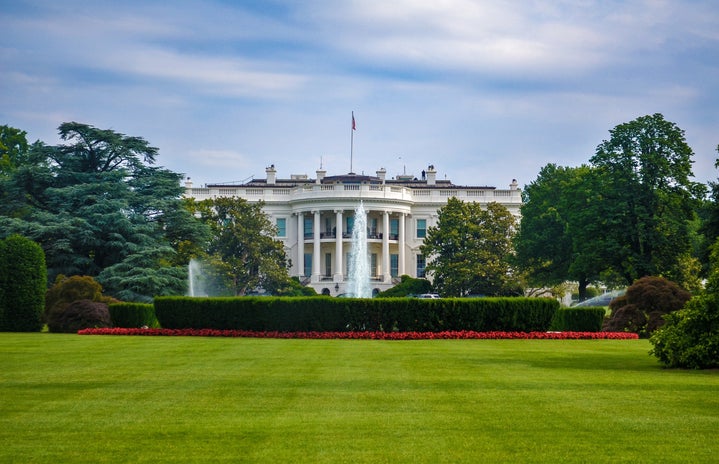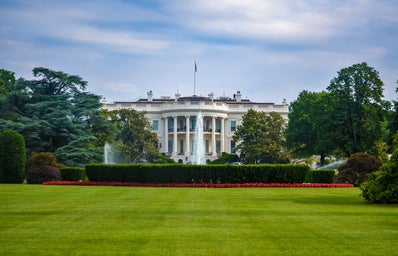On September 24, House Speaker Nancy Pelosi announced a formal impeachment inquiry into President Trump.
What is impeachment?
To be clear, this action will essentially give House committees the ability to investigate the president’s actions on their own, determining if a vote would be viable. If they decide it is, the entire House will vote on impeachment. The president is not removed from office yet, though. If this vote passes the House, which is likely given the significant Democratic majority, the impeachment vote will move to the Senate. After a trial in the Senate, if 2/3rds of the senators find the president guilty, then he would be removed from office. Given the narrow but still clear Republican majority in the Senate, this outcome is unlikely.
What’s the precedent for impeachment?
Only two U.S. presidents have been impeached before: Andrew Johnson in the post-Civil War era and Bill Clinton in the late 1990s. Neither were found guilty by the Senate. However, neither of these cases involved a threat to national security and were defined by issues of domestic politics. An impeachment trial over a national security matter could prove to be more serious.
Why is this investigation being conducted?
The reason Speaker Pelosi called for an investigation is the recent reports that President Trump used the promise of military aid to coerce the Ukrainian President Zelensky to look into a matter involving former Vice President Joe Biden’s son, Hunter. Hunter Biden was previously on the board of a natural gas company that had ties to a Ukrainian oligarch but was cleared of any corruption or wrongdoing several years ago. The Trump administration has alleged that as vice president, Joe Biden tried to get Ukraine’s top prosecutor fired so his son would not be investigated, which is a wholly unsubstantiated claim. The transcript of the phone call in which President Trump suggests to President Zelensky that the investigation be conducted was released by the White House and can be read in full here.
The Whistleblower Complaint
What eventually made this story public is a whistleblower complaint made by an unnamed U.S. intelligence officer. In the U.S. government, those who believe that there is government wrongdoing can file whistleblower complaints through the proper channels without fear of retribution. This intelligence official filed a complaint about the inappropriate nature of Trump’s call with Zelensky, saying that numerous other intelligence officers –– some who worked in the White House –– had voiced concerns that it constituted bribery, as well as inviting foreign interference in the 2020 election. The whistleblower complaint was released by the White House as well and contains some startling accusations. The complaint also alleges that the White House has a practice of storing certain politically sensitive call transcripts like the Ukraine call on high-security computer servers, which are usually meant for classified national security information –– basically to hide these embarrassing or politically damaging words from the public. I highly recommend reading the whistleblower complaint in full with annotation here.
How is this scandal different? This Trump scandal differs from many others, including the Russia investigation, because the White House itself released the evidence. Even House Minority Leader Kevin McCarthy, who has long protected Trump, admitted that Trump’s actions were wrong in this amazing clip from a press conference. The fairly simplistic nature of the president’s actions of withholding U.S. military aid from a fledgling democracy under threat from Russia to demand a personal favor shows a startling level of corruption and comfort with breaking the presidential oath of office. The main complaint comes from a career intelligence officer with detailed knowledge of Ukrainian politics, someone who is likely to be seen as a credible witness with the backing of several others within the U.S. intelligence community. Furthermore, the White House’s apparently common practice of hiding non-sensitive information on high-security servers means that there are likely even more incriminating transcripts from the president. Once investigators gain access to these servers, there may be even more evidence to add to an impeachment inquiry.
What does this mean for the 2020 election?
Any impeachment inquiry undertaken now will likely play out against the backdrop of the Democratic presidential primary. This could take attention away from the policy issues like healthcare, taxes and immigration and place the focus on Trump himself, for better or for worse. It is far preferable to fight an election over the issues that affect people’s everyday lives and not over accusations of personal wrongdoing –– we can see how that turned out for Hillary Clinton in 2016. Of course, if there is some new political calculation that forces Republicans to vote for impeachment, the 2020 election could be fought with Vice President Mike Pence at the top of the ticket. But either way, Democrats in Congress should pursue a political recourse for Trump’s corrupt actions, and those running for president should fight to keep the media focus on the real issues.


